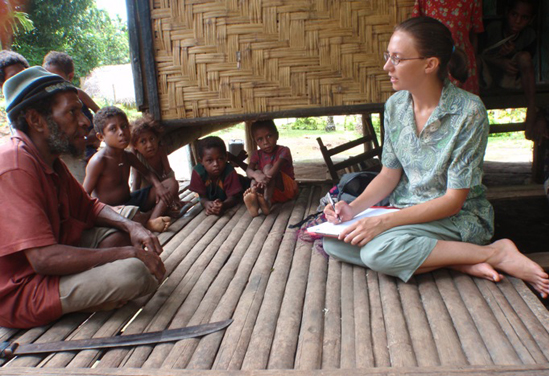
This research examines the role of mobile telephony in rural communities of Papua New Guinea. It was conducted in the earliest stages of mobile phone adoption in these areas. It explores the ways in which this new technology changes people’s lives, social structures and relationships. The research focuses on non-urban communities, which previously had little or no access to modern communication technologies, but which are in some cases still using traditional forms of communication such as drums. It has found that the introduction of mobile telecommunications has generally been viewed positively, although several negative concerns have been strongly felt. Specific benefits related to enhanced communication with relatives and friends living away from home villages, and use of the technology in time-critical emergencies or crises. Difficulties have arisen with respect to the cost of owning and operating a handset, as well as financial and logistical challenges when recharging handset batteries, particularly in areas with no mains electricity supply. Perceived damaging effects of mobile phone access related to sex, crime and pornography.
The changes taking place are described through a social lens, by foregrounding the perceptions of villagers. This is done through reporting of the results of a survey of 748 villagers from ten different villages, plus in-depth interviews with nine people from those villages. The perspectives of eight key informants, such as telecommunication company managers, are also discussed. The sources constantly overlap and agree on the main themes, such as those outlined above. In the case of all ten villages discussed in this research, there has never been any landline telephone infrastructure available. Therefore, this research on mobile phones is in effect documenting the first ever access to any kind of phone in these communities.
This research makes a unique contribution to knowledge about the role of communication in PNG, and has implications for policy, practice and theory. In the policy arena, the research aids understanding of the impact which communication sector competition and regulation can have on rural and relatively isolated communities. There are three practical problems which have emerged from the research: cost, battery recharging difficulties and breakage are all major obstacles to uptake and use of mobile telephony in rural communities. Efforts to reduce usage costs, enable easier recharging, and design more robust handsets would allow for increased utilisation of mobile phones for a range of purposes. With respect to the realm of theory, this research sits amongst the most recent scholarship in the mobile phone field, located within the broader communication theory area. In particular, it argues for communication to be valued of itself, rather than as a means to other ends. It suggests that social uses of the technology (rather than functional uses such as searching for jobs or coordinating logistic.
Dr Amanda Watson's new website
This is the first large-scale, independent research project on mobile phones in Papua New Guinea. Specifically, it focuses on mobile telephony in rural communities of PNG during the early days of phone adoption in such places. This research was granted ethical approval by both Queensland University of Technology in Australia and Divine Word University in Papua New Guinea.
Reviewer report 1:
This is a refreshing and highly informative research thesis, which will be valuable in the communication studies and political economy of communication in a Papua New Guinea and, indeed Pacific-wide, context for some years to come. ... The researcher has been able to document and record one of the few examples of isolated communities adopting modern communication technologies for the first time. ... This thesis is bound to be a valuable touchstone for other telecommunications research in the region. ... In conclusion, this is an excellent and valuable research thesis and an important contribution to the knowledge in the development communication and political economy arenas in Papua New Guinea and the Pacific.
Professor David Robie
Auckland University of Technology
Pacific Media Centre Director
Author of numerous books on Pacific media
Reviewer report 2:
This is a fine doctoral thesis that provides a pioneering and fascinating study of the mobile phone in Papua New Guinea (PNG). It is thoughtfully conceived, painstakingly researched, methodologically constructed, clearly and carefully-written, logically organized, very well-presented, and error-free, and makes a significant, original contribution to research and knowledge.
Professor Gerard Goggin
University of Sydney
Author of numerous books on mobile phones
Watson, Amanda (2011). The mobile phone: The new communication drum of Papua New Guinea. Unpublished PhD thesis, Queensland University of Technology. Full text on QUT's digital respository: http://eprints.qut.edu.au/47170/


